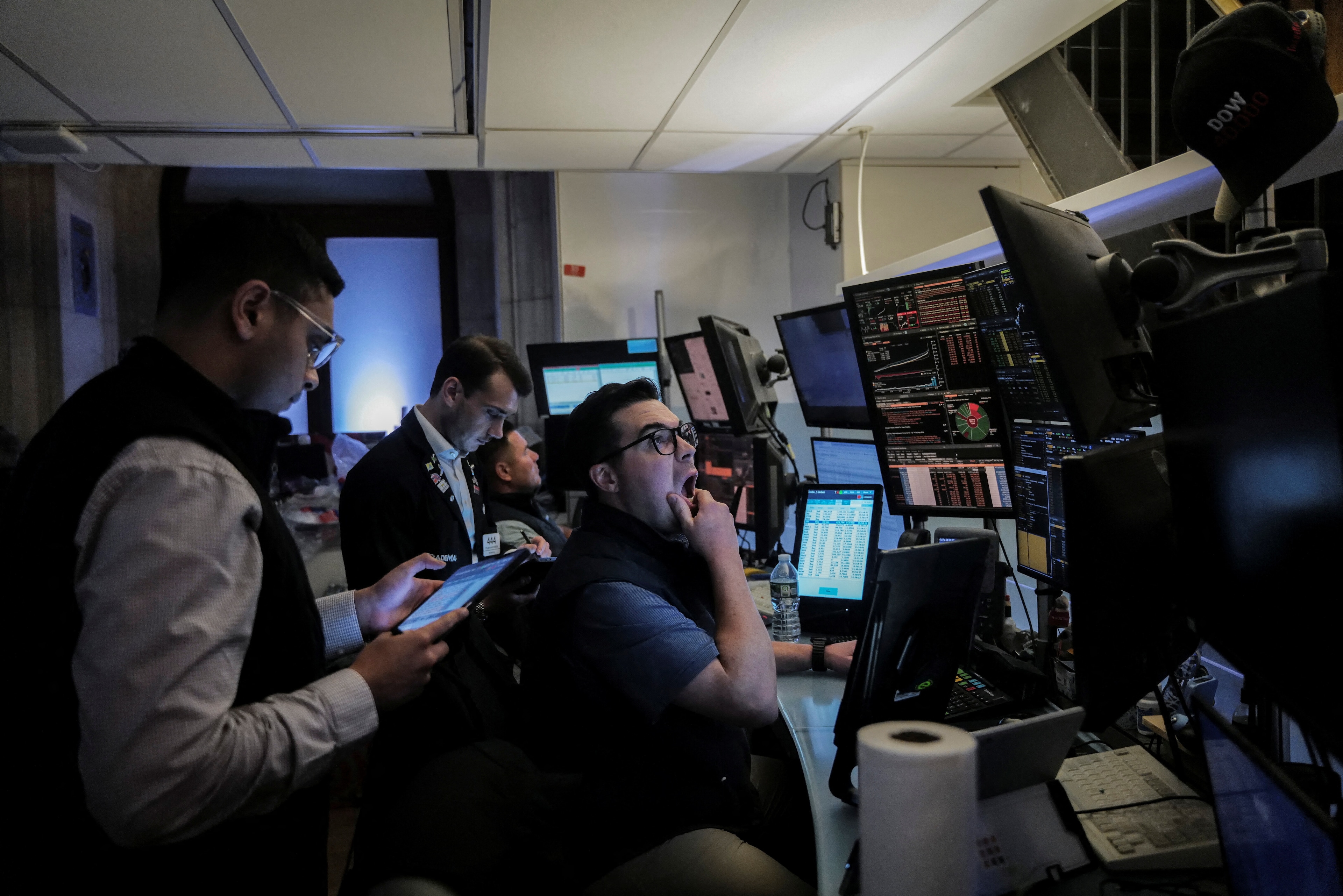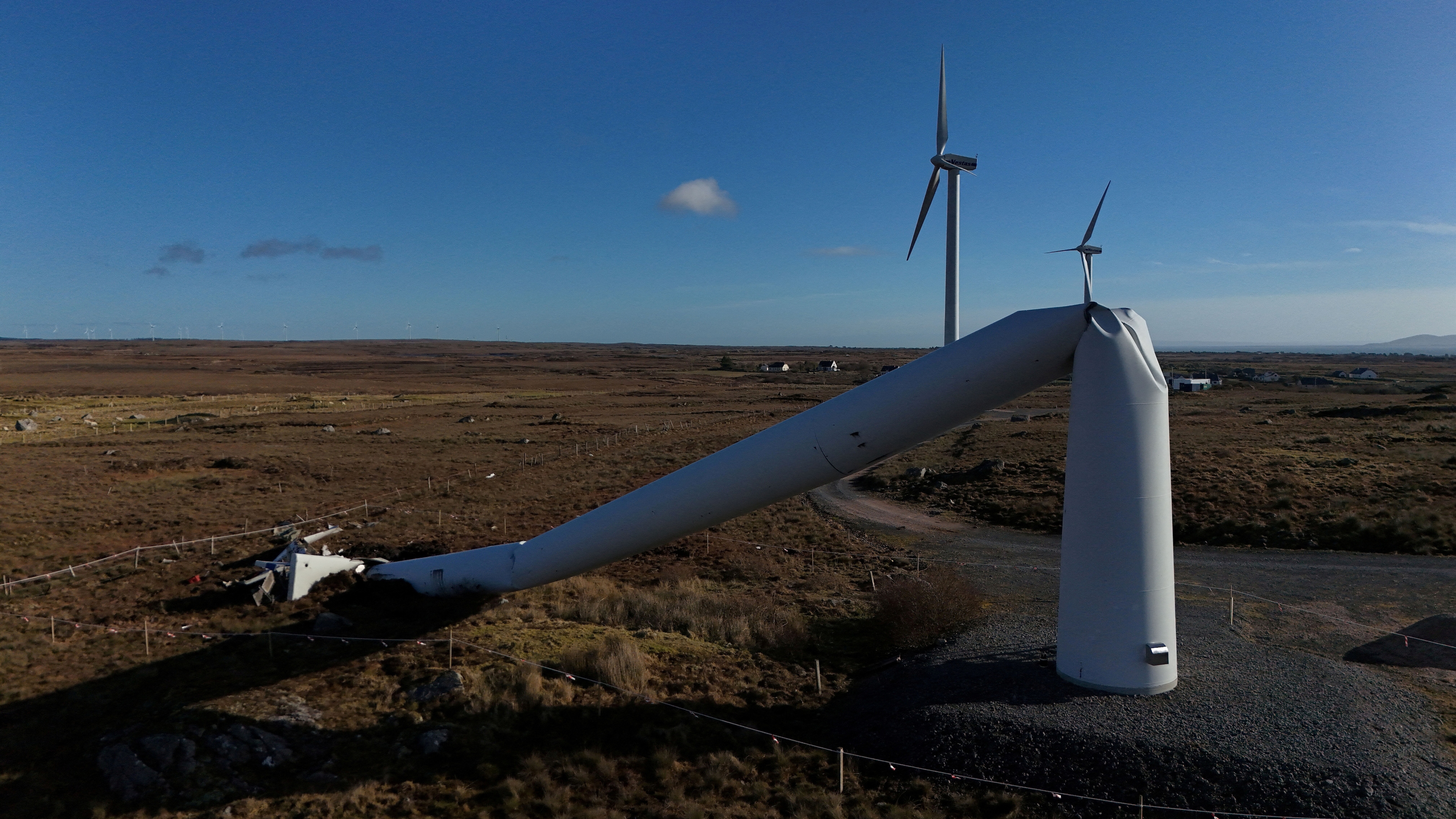Chief economists expect a turbulent year for global economy ahead

A majority of chief economists expect the global economy to weaken over the next year.
Image: REUTERS/Marko Djurica
Stay up to date:
United States
- The global economy faces significant challenges in 2025, according to the latest Chief Economists Outlook.
- Optimism on the short-term prospects for US growth is tempered by concerns over rising debt and inflation.
- Almost half of chief economists still expect global trade volumes to rise, despite intensifying worries over retaliatory cycles of protectionist measures.
The year ahead looks set to be an eventful one for the global economy.
The outlook remains subdued, with a majority of chief economists (56%) expecting the global economy to weaken over the next year, according to the latest World Economic Forum Chief Economists Outlook. Only 17% foresee an improvement, pointing to weakness in key regions and increasing risks of fragmentation.
“Expectations for global growth are muted overall but subject to significant regional divergence,” the report notes. While the United States appears poised for a short-term boost – with 44% of economists predicting strong growth in 2025, up from 15% when they were last asked in August 2024 – the outlook for the year ahead remains less optimistic for other major parts of the global economy, including Europe and China.
The Chief Economists Outlook, published three times a year, surveys leading chief economists from across industries and international organizations. The latest edition explores key trends in the global economy, including the latest expectations for growth and inflation, the likely impact of policy changes in the US, and the outlook for global trade.
The latest Chief Economists Outlook reveals a global economy under considerable strain. The growth outlook is at its weakest in decades, and political developments both domestically and internationally highlight how contested economic policy has become. In this environment, fostering a spirit of collaboration will require more commitment and creativity than ever.
”
Europe continues to rank as the weakest region for the third consecutive year, with nearly three-quarters (74%) expecting weak or very weak growth. Meanwhile, China’s economic momentum is projected to slow amid subdued consumer demand and weaker productivity, further illustrating the uneven and uncertain nature of any global recovery. On the positive side, South Asia continues to stand out with 61% of chief economists expecting strong or very strong growth in 2025.
Global inflation continues to ease, driven primarily by the advanced economies which have been returning to their inflation targets more rapidly than emerging-market and developing economies. In all geographies except for China, which continues to struggle with deflationary pressures, a majority of chief economists expects only moderate inflation. However, after November’s election, the US now leads in inflation expectations. “While central banks remain vigilant following the inflationary surge of recent years, the tightening phase for global monetary policy has clearly ended,” the report states.

The US Economy: Short-Term Momentum, Longer-Term Caution
A majority of chief economists (61%) characterize the impact of the recent US presidential election for the global economy as a long-term shift rather than a short-term disruption.
Major changes are expected in areas such as trade, migration, deregulation, fiscal policy and industrial policy. The chief economists’ solid outlook for US growth in 2025 is in line with their expectation of near-term stimulus and of rising wages. However, they remain mindful of risks, with almost all expecting a rise in public debt levels (97%) and higher inflation (94%).
“If fully implemented, the new administration’s campaign agenda would be a significant departure from current economic policy,” the report notes.

Global Integration under Growing Strain
In addition to subdued global growth prospects, the Chief Economists Outlook reveals intensifying pressures on the world’s economic interconnectedness. Almost all respondents (94%) predict further fragmentation of goods trade over the next three years, while 59% expect services trade to follow a similar path. Significant majorities also expect increased barriers to labour mobility and transfers of technology and data. The financial sector stands out as an exception, with less than half (48%) expecting an increase in fragmentation, likely reflecting the pivotal role of cross-border financial flows in modern economies.

“The main impact of rising fragmentation that the chief economists highlight is a likely increase in costs for consumers and businesses,” the report notes. “Collaboration on global challenges such as climate change is also expected to become more difficult.” More than 90% of respondents view geopolitical rivalries as an important fragmentation driver, with two-thirds viewing them as very important. The strategic rivalry between the US and China is at the heart of this, but there is mounting evidence of wider disruptions in the geopolitical landscape.

Trade Outlook: Navigating Rising Pressures
The global trade system is facing significant threats. “Large majorities of the chief economists surveyed expect a trade war of tit-for-tat trade restrictions between the US and China (89%) and more broadly (68%),” the report notes. However, nearly half (48%) of chief economists also anticipate an increase in global trade volumes in 2025, underscoring the resilience of global commerce.
The report identifies protectionism as the primary factor that will drive lasting changes to global trade patterns, with other prominent contributors including conflict, sanctions and national security concerns. 82% of respondents predict greater regionalisation of trade over the next three years, alongside a continuing gradual shift from goods to services.
“In general, advanced economies tend to benefit more than developing economies from services trade, but a majority of the chief economists point to the increasing importance of services as a driver of economic development,” the report notes.
Don't miss any update on this topic
Create a free account and access your personalized content collection with our latest publications and analyses.
License and Republishing
World Economic Forum articles may be republished in accordance with the Creative Commons Attribution-NonCommercial-NoDerivatives 4.0 International Public License, and in accordance with our Terms of Use.
The views expressed in this article are those of the author alone and not the World Economic Forum.
Forum Stories newsletter
Bringing you weekly curated insights and analysis on the global issues that matter.
More on Economic GrowthSee all
Atul Kumar
August 12, 2025
Elizabeth Henderson and Daniel Murphy
August 8, 2025
Li Dongsheng
July 31, 2025
Charlotte Edmond
July 30, 2025
Naoko Tochibayashi
July 30, 2025
Matt Watters
July 29, 2025





